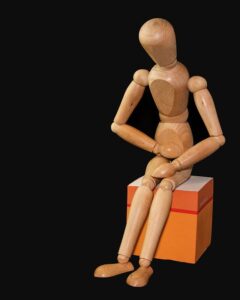Home Remedies for Bloating
Bloating is more than just an inconvenience; it’s painful and can disrupt your day. Digestion issues can spell frustration and even embarrassment. But before you reach for a pill, consider the benefits of natural solutions.
Sometimes, effective home remedies for bloating can bring relief without the hassle of pharmaceuticals.
Understanding Bloating
Ever felt like your stomach is a balloon ready to burst after a big meal? That’s what bloating often feels like—tight, uncomfortable, and distressing.
But what exactly is bloating, and how does it affect your digestion? Let’s have a look at some simple home remedies for bloating. Just remember to check in with your health professional first to make sure there isn’t some other underlying reason for the bloating.
What is Bloating?
Bloating is essentially the sensation of fullness or tightness in the abdominal area. It often occurs after eating, but its causes can be varied.
It’s not just a feeling; it’s a visible swelling of the abdomen. Typically, bloating is caused by excessive gas in the digestive tract, which can result from consuming certain foods, swallowing air, or underlying medical conditions.
Symptoms of Bloating
Bloating is unpleasant I can tell you that! Here’s what you might experience:
- Abdominal Pain: A sharp or dull aching sensation.
- Swollen Belly: Your stomach appears larger than usual.
- Excessive Gas: Passing gas more frequently or feeling gassy.
- Belching: Frequent burping during or after meals.
If these symptoms sound familiar, you’re not alone. Bloating is a common issue that can affect anyone, regardless of age or lifestyle.
How Bloating Affects Digestion
Bloating doesn’t just make you feel uncomfortable; it can also interfere with your digestive processes. The trapped gas can slow down digestion, making your bowel movements irregular or causing constipation. This is not the time to reach for laxatives though, some simple changes might help.
But why does this happen? Sometimes the food you eat takes longer to break down, leading to fermentation in the gut. This releases gases like hydrogen, methane, and carbon dioxide, causing that tell-tale bloating feeling. If you have an understanding of the root causes, you can better manage the bloating.
By knowing what triggers your bloating and how digestion plays a part, you can arm yourself with the tools needed to take control. Wheat was one of the culprits for me, I discovered I had an allergy so it was as simple as removing wheat products from my diet
 Diet and Bloating
Diet and Bloating
Diet plays a significant role in how our digestive system operates. Certain foods and eating habits can lead to bloating:
- High-Fibre Foods: Foods rich in fibre like beans, lentils, broccoli and whole grains are essential for good health but can cause gas and bloating when consumed in large quantities. They ferment in the stomach, which can increase gas production.
- Dairy Products: Many people find themselves bloated after consuming milk, cheese or ice cream. This is often due to lactose intolerance, where the body struggles to digest lactose, a sugar found in dairy.
- Carbonated Drinks: Fizzy drinks might be refreshing, but the bubbles in these beverages can make their way to your stomach, causing a build-up of gas.
For more a more detailed read, head over to Cleveland Clinic
Lifestyle Factors
Your lifestyle can also affect your digestive comfort. Here are some habits that might lead o bloating:
- Eating Too Quickly: When you rush your meals, you may swallow air along with your food. This extra air can get trapped in the digestive tract and lead to bloating.
- Lack of Exercise: A sedentary lifestyle can slow down digestion, leading to constipation and, consequently, bloating. Regular physical activity helps to get things moving in the gut.
- Stress Levels: Stress and anxiety can mess with your digestive processes. They may increase the frequency of other digestive symptoms, including bloating.
Medical Conditions
Sometimes, bloating can be a symptom of an underlying medical condition and I’ll repeat, it’s important to consult with your health professional.
- Irritable Bowel Syndrome (IBS): Those with IBS may frequently experience bloating as part of their symptoms.
- Coeliac Disease: An autoimmune disorder where the ingestion of gluten leads to damage in the small intestine, often causing bloating.
- Gastric Disorders: Conditions like gastroesophageal reflux disease (GERD) or gastritis can also manifest in bloating.
It’s clear that many factors can lead to uncomfortable bloating. Recognising these causes is crucial in finding the right solution, whether that involves adjusting your diet or changing lifestyle habits.
Home Remedies for Bloating
Bloating is a common discomfort that many experience after a meal or during certain times of the month. Fortunately, there are several home remedies available that can help reduce bloating and provide a much-needed sense of relief.
Herbal Teas
When it comes to soothing a bloated stomach, herbal teas are a tried-and-true option.
- Peppermint tea (my favorite) is known for its muscle-relaxing properties which can ease digestive distress. Studies highlight peppermint’s effectiveness in reducing gas and bloating.
- Chamomile tea not only helps with relaxation but also acts as an anti-inflammatory, soothing your stomach lining.
- Meanwhile, ginger tea stimulates digestion by increasing the speed of food moving through your system, which can significantly decrease bloating. It’s like giving your digestive system a gentle nudge forward.
Physical Activity
Movement can be an excellent remedy for bloating. Simple activities like walking can promote regular bowel movements which help reduce bloating. Even a gentle yoga routine with poses such as the Cat-Cow stretch can be quite beneficial.
Warm Compresses and Massages
Applying a warm compress to your abdomen can improve blood circulation and decrease bloating. A gentle abdominal massage can also help move trapped gas through the intestines.
Essential Oils
Lastly, the application of essential oils, such as peppermint and ginger oil, can provide quick relief. When diluted with a carrier oil and massaged onto the abdomen, these oils can enhance the digestive process and reduce bloating symptoms.=
Checking for Food Intolerances
As I mentioned earlier, identifying food intolerances and allergies can help get to the bottom the problem. A food intolerance occurs when your digestive system struggles to process certain foods. While it differs from a food allergy, it can still cause unpleasant symptoms such as bloating, gas, and stomach pain.
Identifying Symptoms of Intolerance
Food intolerances are sneaky culprits that often hide in plain sight. How do you know if you’re dealing with one? Look out for signs like:
- Persistent bloating
- Excessive gas
- Abdominal pain or cramps
- Diarrhoea or constipation
- Indigestion
If these symptoms sound familiar, you might be dealing with a food intolerance. According to the Cleveland Clinic, your gut may be sensitive to foods like lactose or gluten, which could be causing your discomfort. It’s essential to listen to your body and note when these symptoms arise.
Elimination Diets
An elimination diet can help you pinpoint which foods are causing the trouble. Here’s how to safely conduct one:
- Remove Suspected Foods: Cut out foods you think might be causing discomfort for several weeks. This often includes common culprits like dairy, wheat, and soy. An intolerance and allergy test is the best way to check this. Rather than just “suspecting” culprit foods, you’ll know for sure.
- Observe Changes: Pay close attention to your symptoms and see if there’s an improvement.
- Reintroduce Foods Slowly: After some time, gradually add the removed foods back into your diet, one at a time. Observe which ones trigger symptoms.
- Keep a Food Diary: Documenting your experiences can help you identify patterns and make informed decisions.
Sudden Changes
Pay attention to how your bloating began. If it starts suddenly and comes with symptoms like weight loss, changes in bowel habits, or loss of appetite, this is the time to consult your doctor. Sudden changes can sometimes mean you need more than home-based remedies.
Finally, in brief
Bloating can be painful, but simple home remedies may offer relief. Opt for herbal teas like peppermint or chamomile to soothe digestion or try a gentle belly massage to ease discomfort. Regular physical activity, such as walking, remains a key strategy for promoting digestive health.
Looking at dietary habits is also vital, like reducing carbonated drinks and avoiding rapid eating. Simple lifestyle changes are often the easiest solution.
Small adjustments can lead to a healthier, more balanced gut. Your journey to better digestion starts with making healthier choices!
